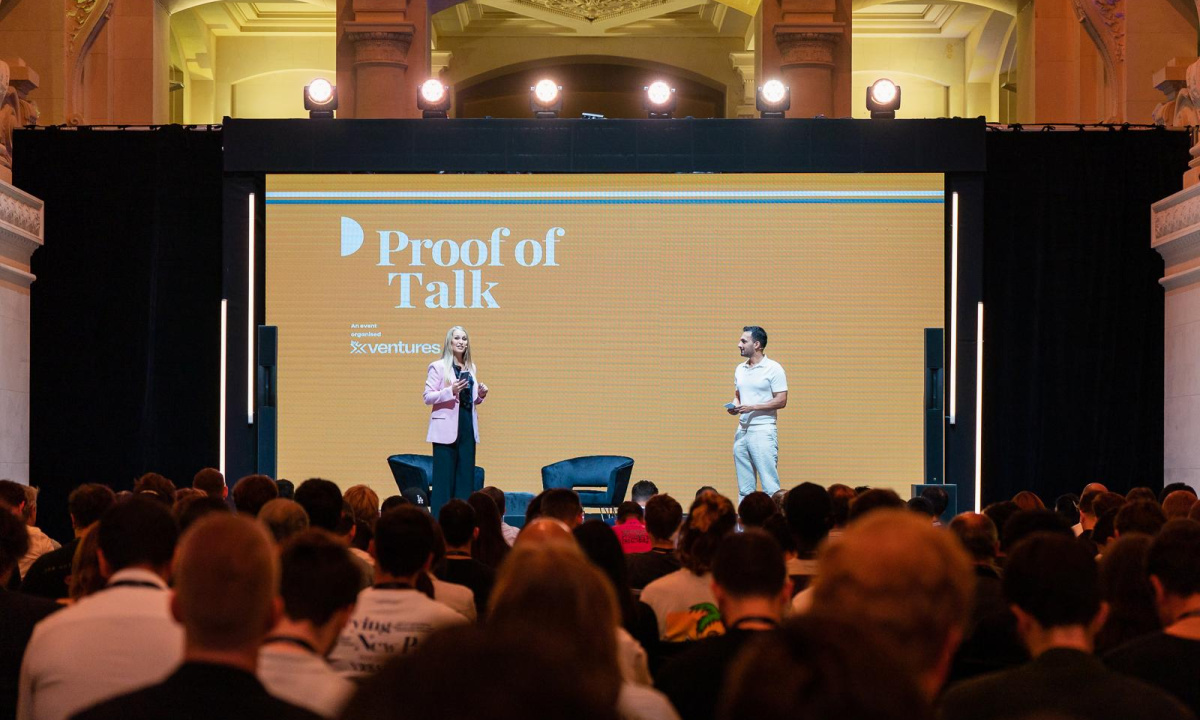A recent panel hosted by IoTeX, a Decentralized Physical Infrastructure Network (DePIN) tech and infra provider, focused on the advances in Account Abstraction (AA) and its impact on the Web3 space, including its potential to bring the next billion new users to Web3.
The DePIN panel discussion on Twitter spaces included Intu Co-CEO and Co-Founder James Bourque and IoTeX CEO and Co-Founder Raullen Chai. Noam Hurwitz of Alchemy, Danny Salman of Polygon Labs, Third Web DevEx Engineer Ciara Nightingale, Web3 Foundation's Bader Youssef, and Larry Pan, IoTeX Head of Business Development, also participated.
The panelists agreed that AA could onboard the next wave of adopters in the Web3 space. By abstracting away the complexities of the blockchain, AA can create a seamless user experience where users won't even know that they are interacting with blockchain technology. That could be a gamechanger for the industry and pave the way for developing the next massively used dApp.
Explaining why AA will spark further adoption
Account Abstraction allows for a more sophisticated approach to managing blockchain assets by abstracting away the underlying account model of a blockchain. That means that users no longer have to worry about managing private keys and can instead interact with the blockchain using a more user-friendly approach. AA essentially makes accounts smart contracts, so instead of being an externally owned account (which requires the owner to sign transactions), smart contracts can interact directly with the blockchain. This creates a more seamless user experience that can be more accessible to people who are new to crypto.
Bourque explained that at Intu,
"we have been aiming to achieve similar things to account abstraction since we started. We're firm of the opinion that together a kind of multi-party computation and cryptography with account abstraction is really the clear path to that user experience, that human-first experience that I think will bring the next billion users to crypto."
More user-friendly and intuitive
AA makes it possible to create more complex and sophisticated applications on the blockchain. With smart contracts accounts that manage assets, developers can create more sophisticated decentralized applications (dApps) that offer a wide range of services, from asset management to peer-to-peer transactions. This means that users can take advantage of the full potential of the blockchain and access a broader range of more user-friendly and intuitive applications.
By making the blockchain more user-friendly, developers can create applications that are more intuitive and easier to use, even for people who are not tech-savvy. The panelists agreed that this could lead to a surge in the adoption and usage of decentralized applications, which could bring about a new era of innovation and growth in the crypto industry.
Ethereum and Account Abstraction
Ethereum Foundation is at the forefront of account abstraction. In 2021, Ethereum Founder Vitalik Buterin and other blockchain experts released the account abstraction proposal, which strives to improve the user experience and security of crypto wallets, among other things.
Tom Tamen of the Ethereum Foundation is part of the team working on his company's EIP 4337, which he said is a continuation of his personal goal to take blockchain to the average person. He believes Web3 is fast approaching the tipping point where developers will build "a killer app" that will spark the next wave of adoption.
IoTeX's Pang said,
"The onboarding of the masses is definitely something that is top of mind. However, he said he firmly believes "that the ease of onboarding traditional companies into Web3 will be greatly simplified with account abstraction."
The need for more Web3 developers
Danny thinks AA "really brings us the idea of being able to develop where you would live in a contemporary (traditional or mainstream) software environment without needing to know anything about blockchain or crypto."
He rightly pointed out the need for more developers in the Web3 space, saying there are currently at most 35,000 blockchain developers worldwide, while in traditional sectors, there are nearly 30 million globally.
AA in the DePIN space
DePIN stands for Decentralized Physical Infrastructure Networks. For simplicity purposes, it is the Web3 IoT, which many experts believe is set to bring the next big wave of users to crypto.
"AA in DePIN will make it easier for users worldwide to access blockchain accounts." Because the multi-trillion-dollar machine economy is currently powered by tens of billions of smart devices, this could potentially be the path for new users into the Web3 space, said Raullen Chai.
"Think about the traditional Internet of Things deployment. There's a lot of co-ownership of every single gateway that connects to all these different types of sensors. And the ability to represent these things in an abstracted kind of hierarchical way is something that's brand new and is going onboard a ton of companies that want to use decentralized infrastructure", reiterated Larry Pang.
The race to mass adoption
The race to bring the first billion to crypto is not new. However, account abstraction raises hope for that milestone to be achieved. In a recently published article entitled On Keys and Code: Account Abstraction and the Race to 1 Billion Users, Brian Astrove wrote that AA is "the process of taking away or removing characteristics from something to reduce complexity and increase efficiency."
Astrove said user accounts need more flexibility, making it challenging to build experiences that mainstream users will accept. Today, if you lose your public key, you lose your private key, you also lose your assets.
"This is why more flexibility is critical to onboard new waves of users. It opens the door for user experiences we expect in 2023, with security features like password recovery and multi-party signing. This is what account abstraction promises," he added.
Disclaimer: This article is provided for informational purposes only. It is not offered or intended to be used as legal, tax, investment, financial, or other advice.
Investment Disclaimer










